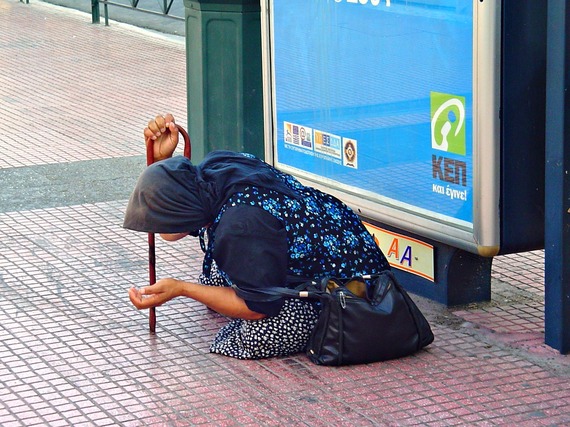Are you interested in applying to THINK Global School but aren’t quite sure if it’s right for you? That’s OK! It’s a decision that shouldn’t be taken lightly. To help you in your application process, we’ve put together a list of five things we feel every applicant to THINK Global School should know. We hope you find them helpful. 1) You’ll gain an education by living and learning in the...
Read MoreOne issue that keeps popping up for me both at home and in each country I visit is ethics. In Greece, it’s often been on the forefront of my mind. There was one afternoon where my classmate River and I took four different subway rides, and on each one we were approached by people asking for money. There was a man so scarred by burns that it was impossible to imagine what his face had looked like before. His voice was high and croaky, not understandable first of all because he was speaking in Greek, but secondly because it was so garbled that I doubt many people could understand at all. There were three children with accordions, who got as close to us as possible and smiled huge smiles that disappeared as soon as they figured out that we weren’t going to be reaching into our wallets anytime soon. There was a mother holding a baby, followed by a man with a cup, shaking it near our hands. There was an old woman with arms full of plastic-wrapped roses. Neither River nor I gave any money, but the internal struggle that gripped me each time was not unfamiliar. As a compassionate human, with so much love for the world, how can I stand there cloaked in my armor of privilege and avoid eye contact with a much more desperate one of my kind?
And yet to give is another thing entirely. To give would be to give in, to acknowledge that money is the most relevant form of compassion to so many. The economic crisis manifests itself in so many ways, little ways that weave themselves into the fabric of our daily lives, from the inescapable graffiti to the cheap price for a gyro down the street to the overqualified ice cream guys named Alex who want to apply to Princeton and Berkeley for pure mathematics and the walking tour guides named Yiorgos who are currently writing theses comparing the foundations of American democracy to the foundations of ancient Athenian democracy. One of these ways is the high rate of homelessness and the high rate of begging, which is why it is hard to go a day without being approached. The wave of guilt that I always feel upon turning someone down is immediately absolved by a feeling of self-righteousness that I have been taught to feel; that just because I have privilege and access to opportunity doesn’t mean I’m obligated to share it. But is that truly ethical? To what extent do I have a right to my privilege? Simply because I was born under different circumstances, my living conditions are infinitely better than those of the people asking me for money. I am a visitor to Greece, someone largely unaffected by the economic crisis. A euro or two would be a small concession in comparison to what I spend per week on food or coffee. So why does it feel like such a big deal? Why is it simultaneously so hard to give and to withhold?

Photo by Flickr user CameliaTWU
My theory on this is that it has to do with being put in a position where I am forced to acknowledge my own privilege. I am forced to acknowledge one of the very distinct differences between myself (meaning people with similar or more privilege to me) and less privileged humans, when I spend so much time looking for similarities. It is so easy to live my daily life without thinking once about the small girl on the side of the street with the accordion who should most definitely be in school and not looking at me with those big eyes, until I am placed in a city like Athens, where it is a part of my daily reality. At home, despite the many homeless people of New York, there is an unmistakeable lack of aggressive begging (which I’m characterising as outright approaching rather than sitting on the sidewalk with a sign). Aggressive begging was something that I dealt with for the the first time in India, and my viewpoint on it is still a work in progress. The longer I live here in Athens, the more compelled I feel to confront my ambiguity and come to a conclusion.